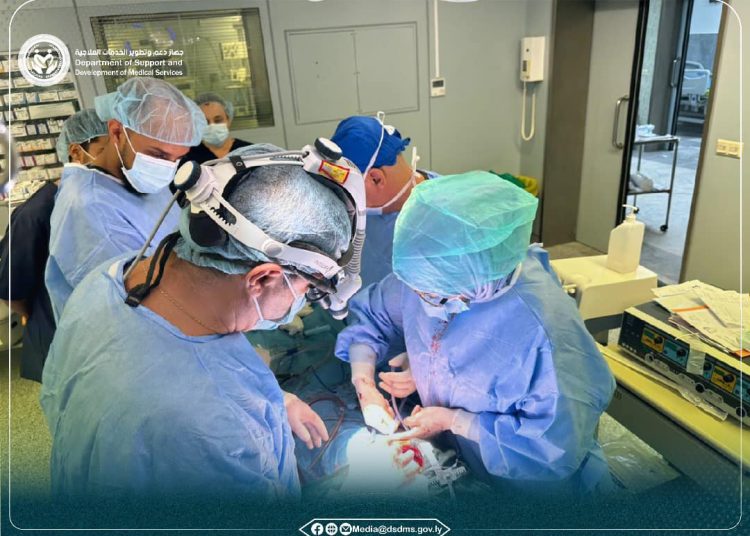The Media and Awareness Office of the Department of Support and Development of Medical Services (DSDMS) confirmed, in an exclusive interview with the Libya Herald, the arrival of the visiting Italian medical team specialising in paediatric heart defects to the Heart Hospital in Tajoura.
The medical team had begun conducting examinations and filtering the cases registered in the agency’s branch offices last Thursday and began surgical operations last Friday, as part of the project to localise treatment in Libya, which the DSDMS is working on.
Use of visiting doctors for locally untreatable conditions
The DSDMS’s Media and Awareness Office said that it seeks to localise this type of treatment and operations in several major hospitals in Libya. This, it explained, comes within the strategic plan prepared to develop localising treatment by bringing in foreign medical teams, whether visiting or resident, and training local medical personnel on the latest modern technologies. This plan aims to treat patients, especially those with heart and arterial diseases, and some other diseases, for which there is no treatment inside Libya.
The Media Office indicated that a schedule for visiting medical staff has been made for the coming months to perform numerous external operations for several patients with serious diseases who need to urgently perform highly accurate surgeries. It explained that the type of diseases and the number of patients in need for urgent operations will be determined internally, in coordination with local medical authorities and hospitals across all Libyan cities.
Meeting with head of Rome hospital
It will be recalled that in August Libya Herald had reported that DSDMS’s head, Ahmed Mlitan, had met at his Tripoli headquarters with the Italian consultant Sasha, head of the Department of Paediatric Heart Deformities Surgery at the Bambino Gesù Hospital (Ospedale Pediatrico Bambino Gesù / Baby Jesus Paediatric Hospital), Rome, Italy.
During the meeting, the DSDMS had reported, it was agreed to start implementing the localisation of treatment programme in the specialty of paediatric heart surgery, starting from September, in several public health centres across Libya.
The programme will continue over a long period of time
The DSDMS had said the programme ‘‘will continue over a long period according to a clear strategy and plan’’ and ‘‘aims to train Libyan medical staff and to perform surgical operations, in this speciality’’.
It had explained that this agreement comes within the framework of the DSDMS’s work with the Tripoli government’s ‘‘Restoration of Life’’ project through the ‘‘Localisation of Health Treatment’’ policy.











